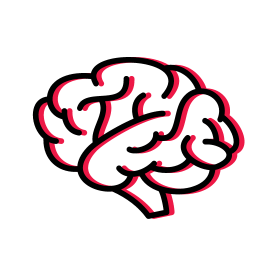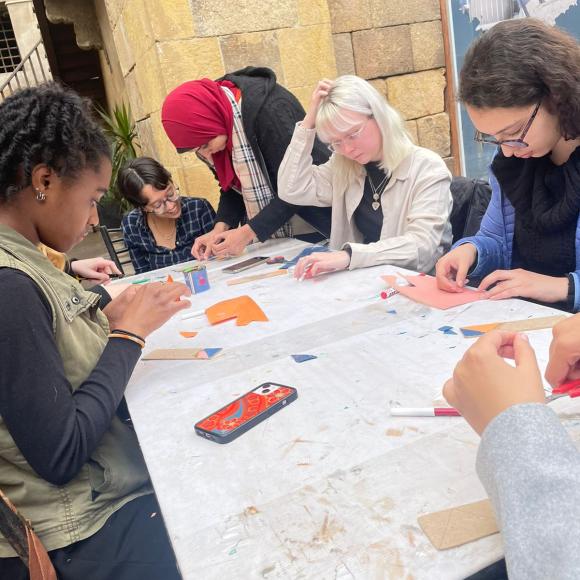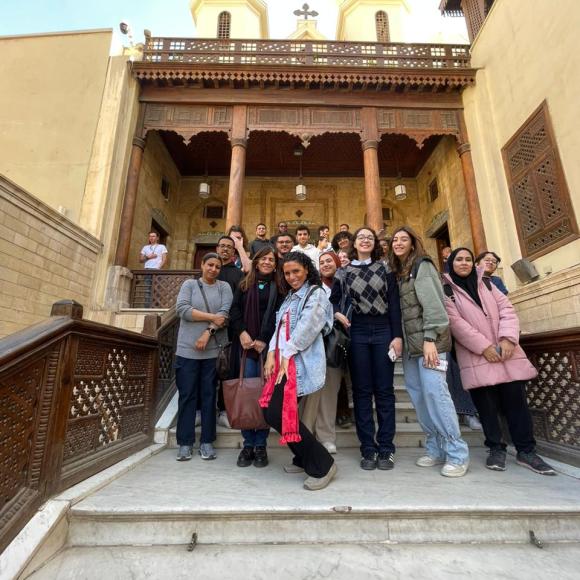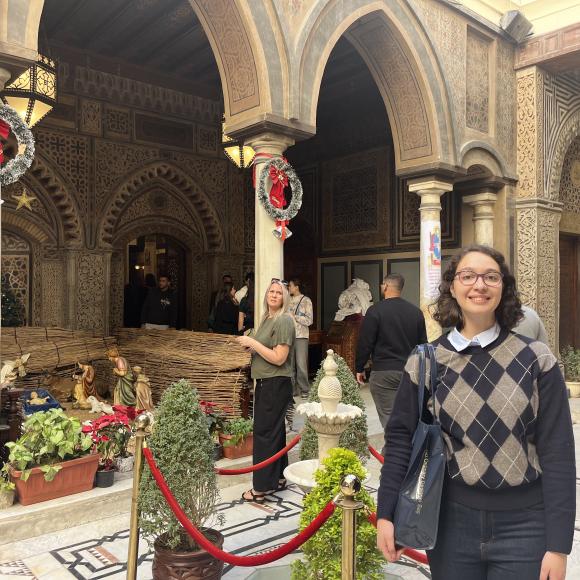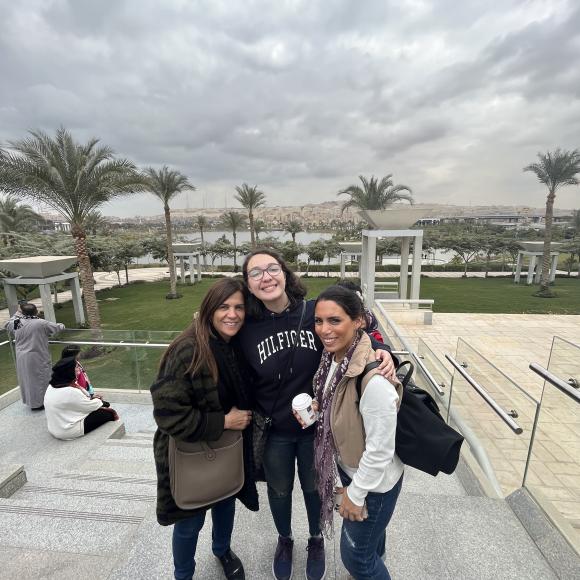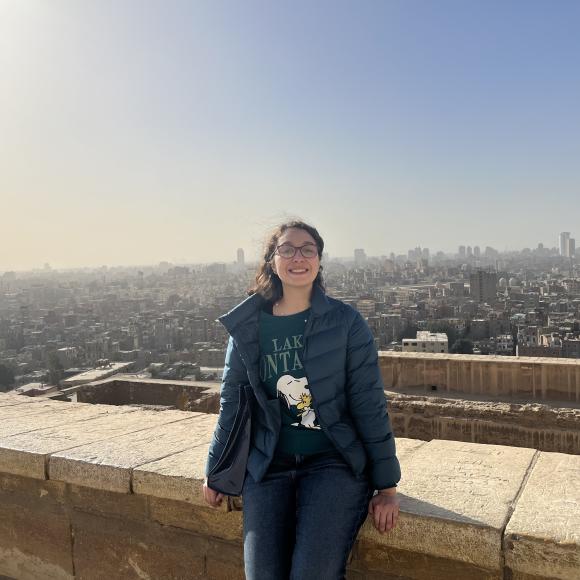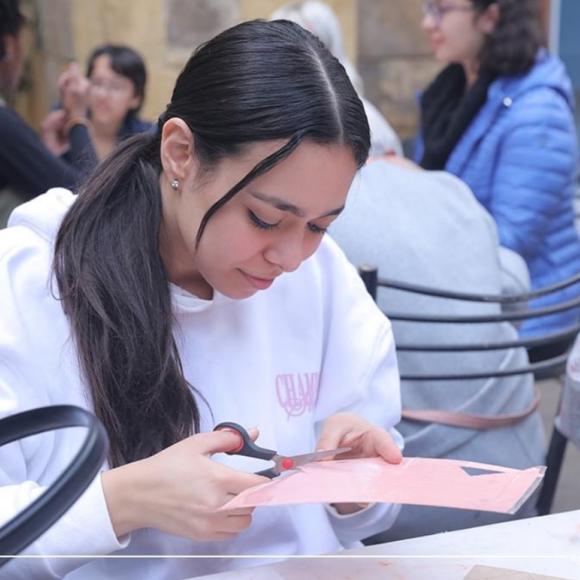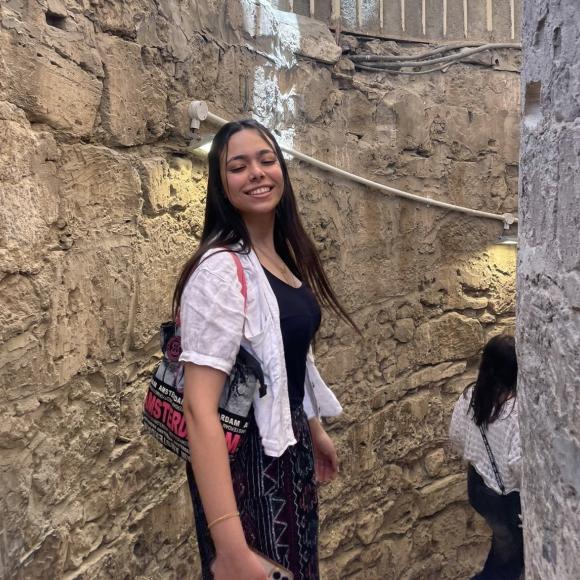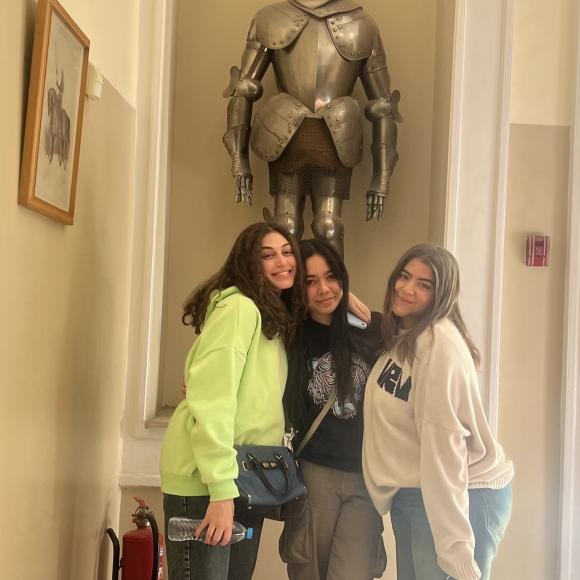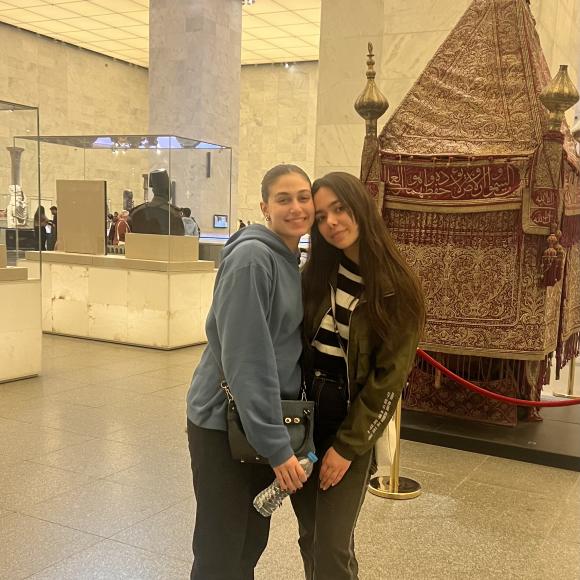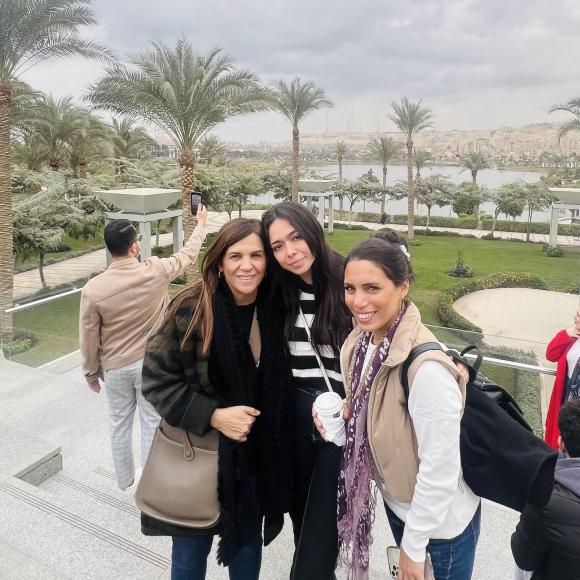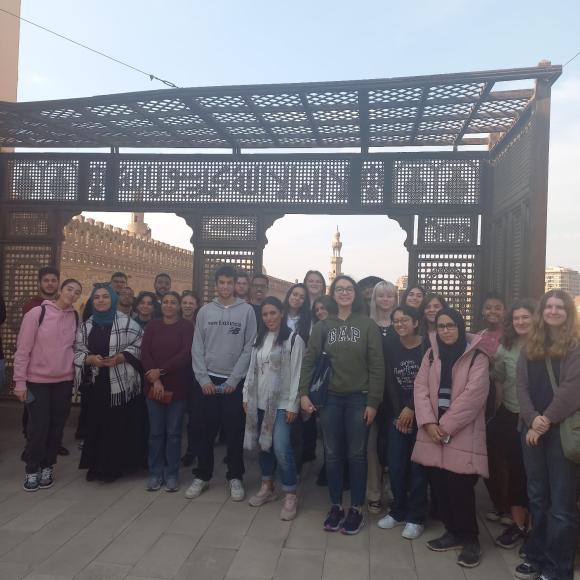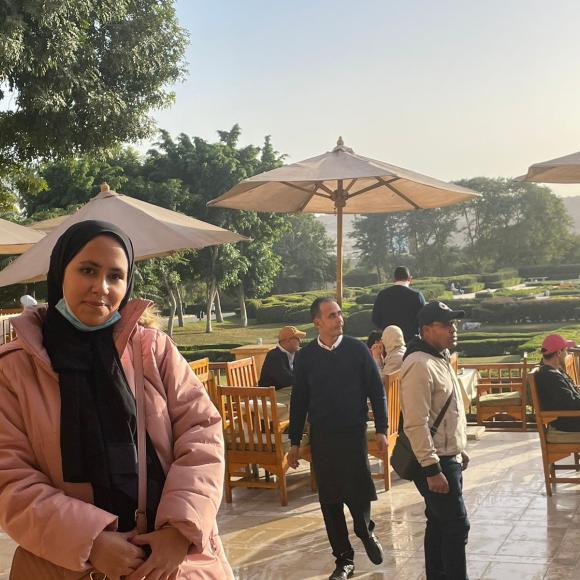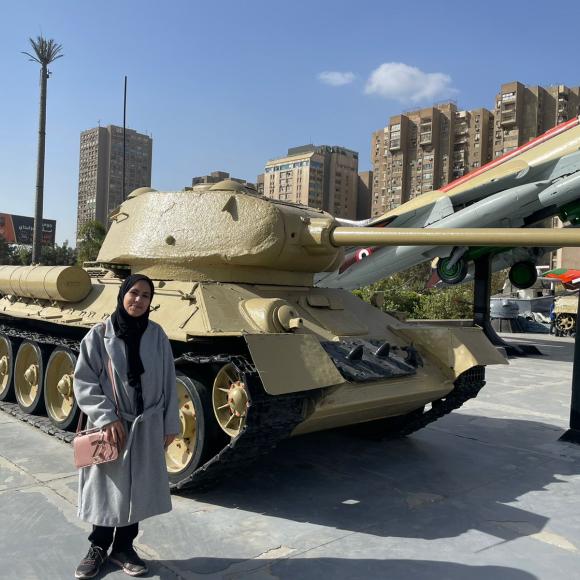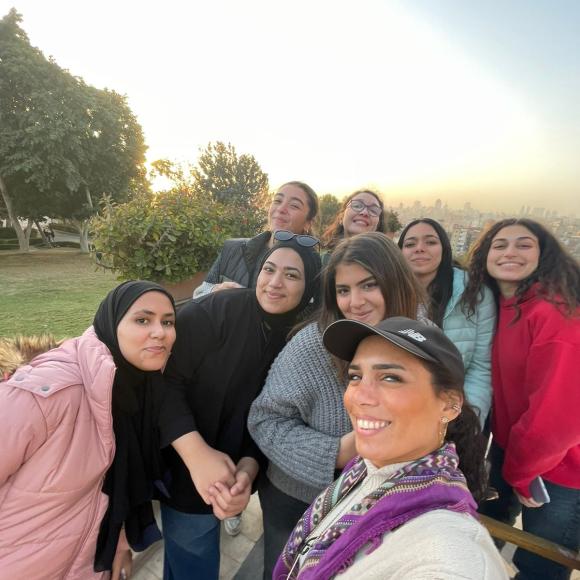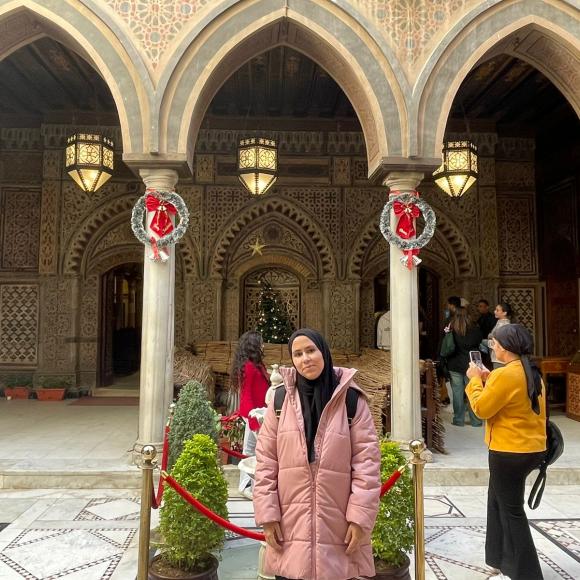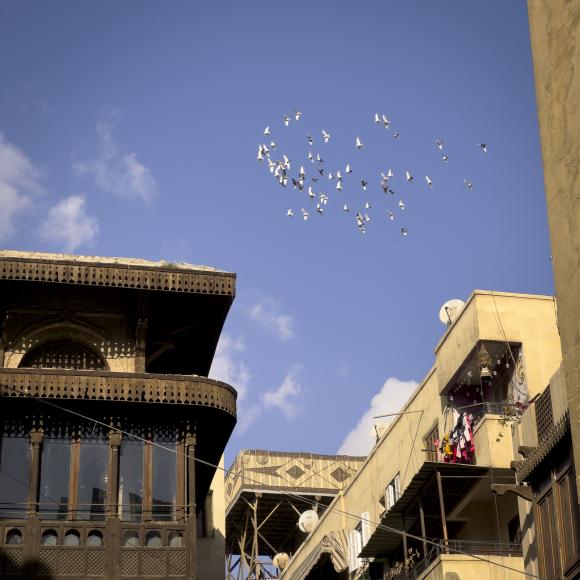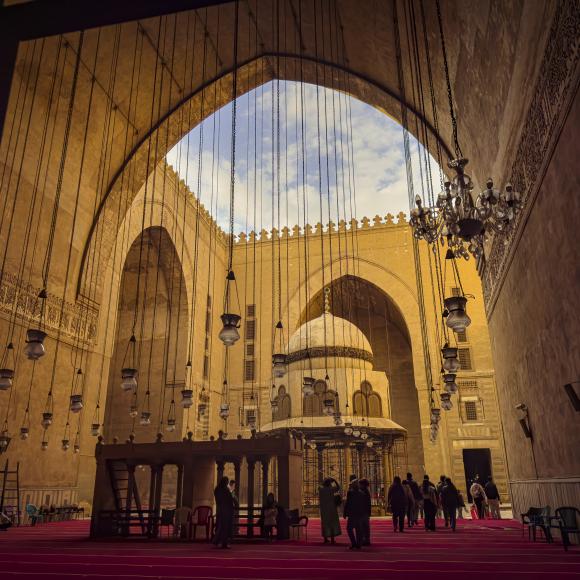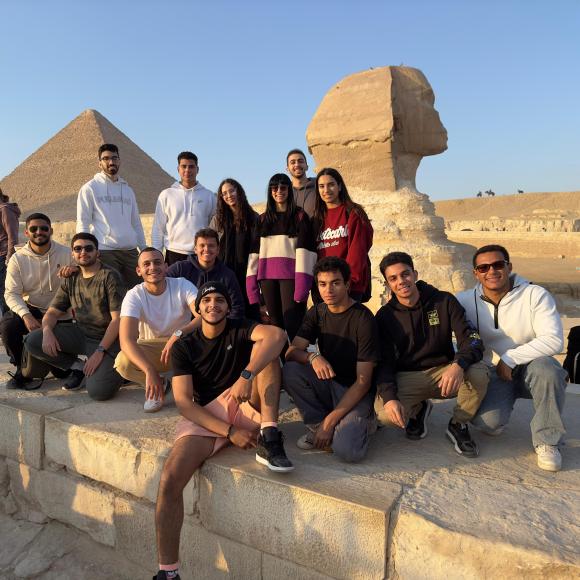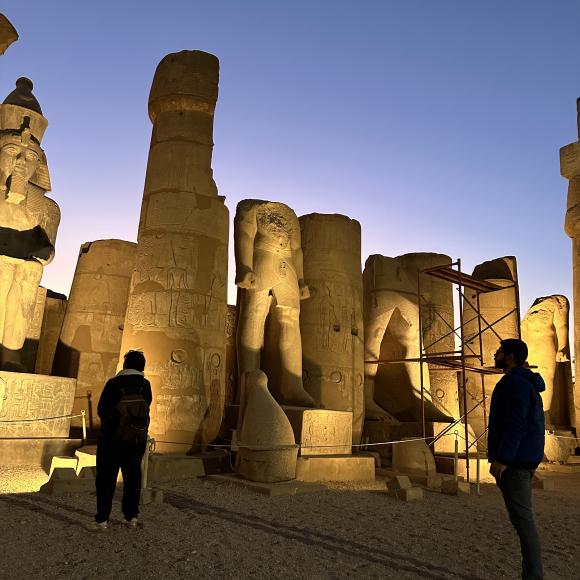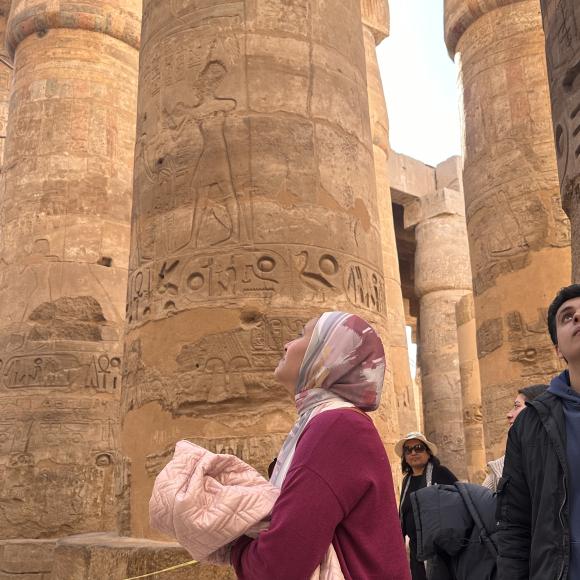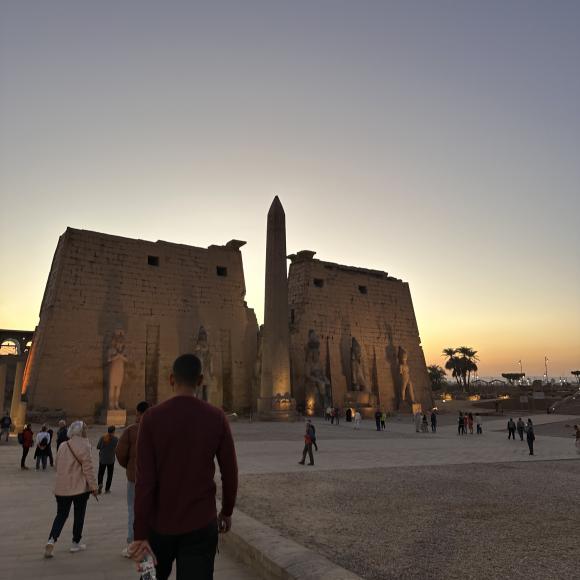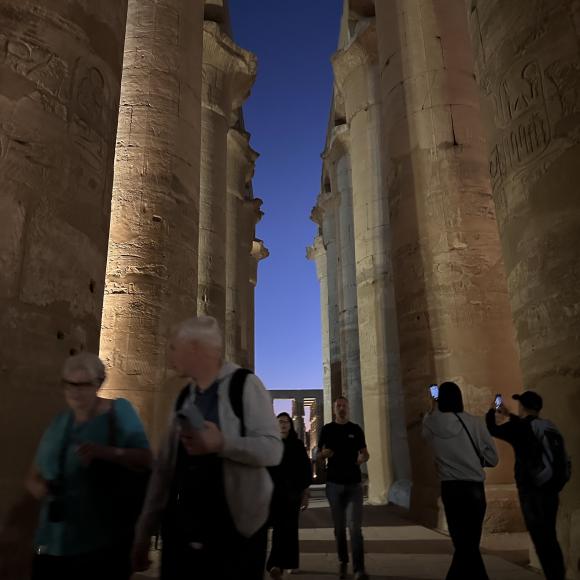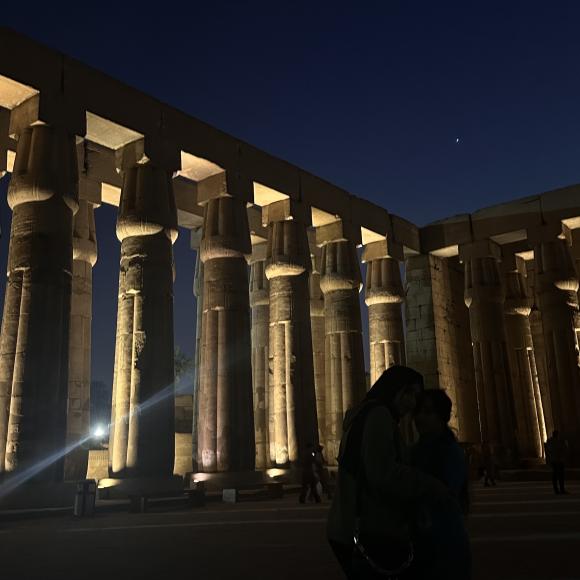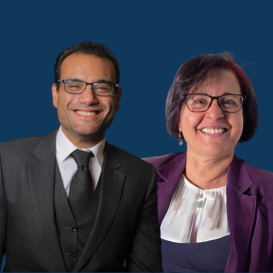Graduate students in the Master of Public Administration and Master of Public Policy programs as well as undergraduate seniors majoring in political science and anthropology engaged with nonprofit organizations hands-on this winter through the Volunteer Management course, a first-of-its-kind for the Department of Public Policy and Administration.
The students went on a field visit to AlHassan Foundation for Differently Abled Inclusion, a nonprofit organization that serves people with physical challenges, mainly wheelchair users, in all of Egypt’s 27 governorates. They also engaged in discussions with guest speakers from the Sawiris Foundation for Social Development and Greenish, which develops solutions for environmental issues in Egypt through art, capacity building and awareness campaigns.
“Volunteer management focuses on the processes associated with overseeing a volunteer-based workforce –– recruiting, training, engaging and retaining –– to achieve the goals of a volunteer organization,” explained Shahjahan Bhuiyan, professor in the Department of Public Policy and Administration and associate dean for administration and undergraduate studies in the School of Global Affairs and Public Policy. “The purpose of the field visit and guest lectures was to ensure that students understand how such an organization operates on the ground and see firsthand the differences between theory and practice. This is typical of any experiential learning course.”
Students learned about social entrepreneurship, civic engagement and nonprofit leadership, including how to start a volunteer program, manage its performance, raise funds, build trust, establish a legal framework, balance ethics and accountability, and overcome challenges through community-centered solutions.
“Our visit to AlHassan Foundation was an eye-opening experience for me,” said Marwa Zayed. “|I was impressed by the staff's level of awareness, maturity, education and passion that I witnessed during our short visit. They are not working haphazardly; all their programs and activities are evidence-based and derived from recent studies and best practices in the field.”
Echoing the same sentiment, Marwa Ghoubashy said, “I heard about AlHassan Foundation two years ago, and I am genuinely astounded by their remarkable progress within such a brief period of time. Their efforts have led to the incubation of eight projects, primarily focused on promoting the inclusion and integration of individuals with mobility limitations. Witnessing their enthusiasm surpassed all expectations and left us with so much inspiration and optimism.”
The course aimed to prepare students, both theoretically and practically, to understand the critical role volunteer organizations play in the overall development of society, particularly in the Global South.
For Heba Ibrahim, the course was a stepping stone to her thesis, which focuses on volunteerism in Egypt. “It gave me valuable insights and ideas on how to manage volunteers in a nonprofit organization,” she said.
As Bhuiyan put it, “In this course, we tried to give students hands-on, practical adeptness to the realities of volunteerism and a window into the complexities of managing it. The mantra of success for volunteer organizations is to continuously raise awareness of the impact of volunteering on society and achieving the common good. The goal is that teaching 'altruism' may motivate people to become volunteers.``
And that is exactly what happened with MPA student Youssef Raaft. “This course changed my perspective on volunteer management and how it ought to be regulated. It has since triggered my interest to be an active participant in the development and enhancement of volunteerism in Egypt.”


